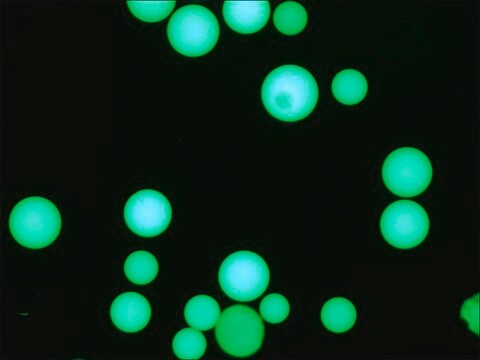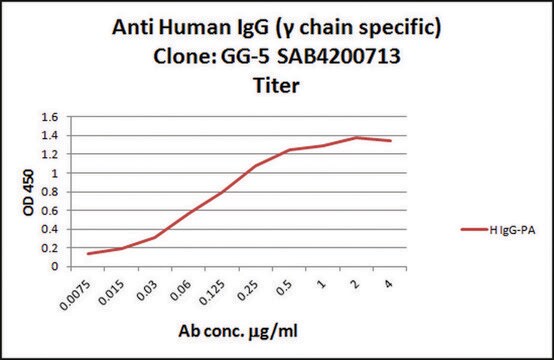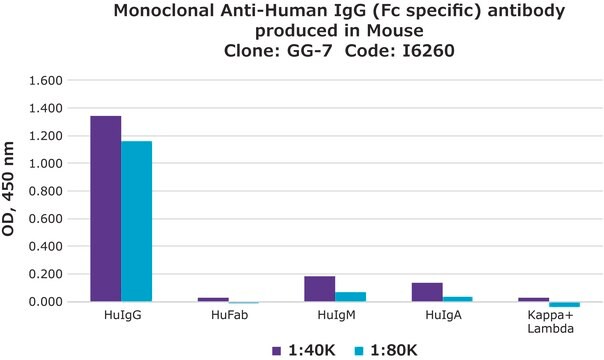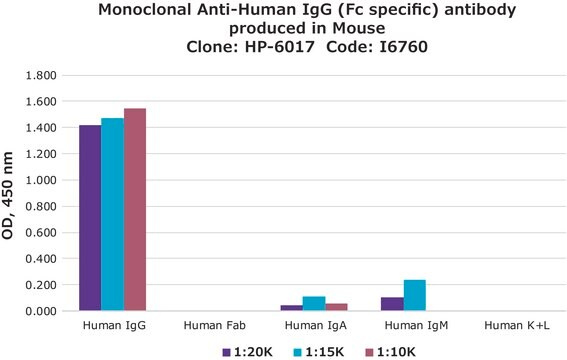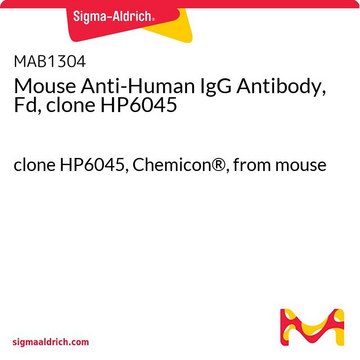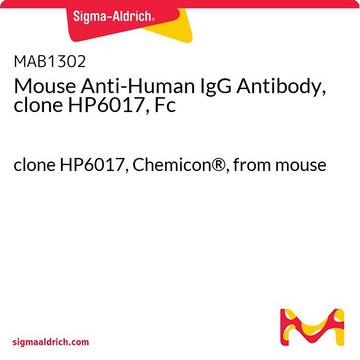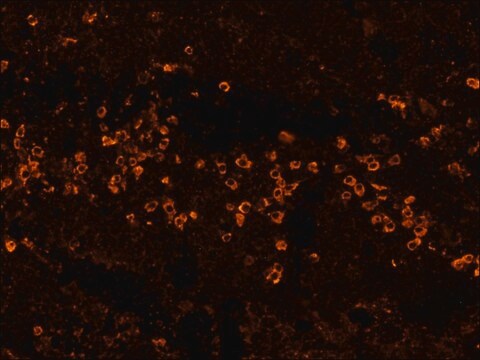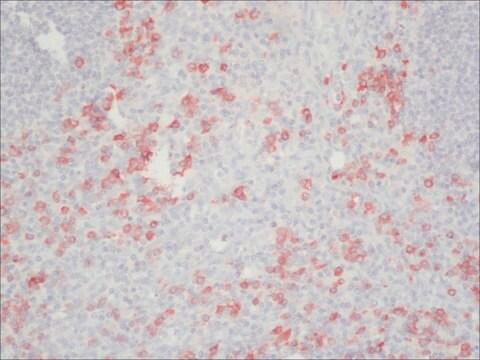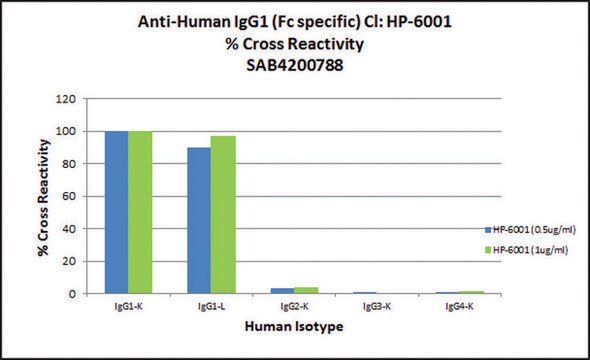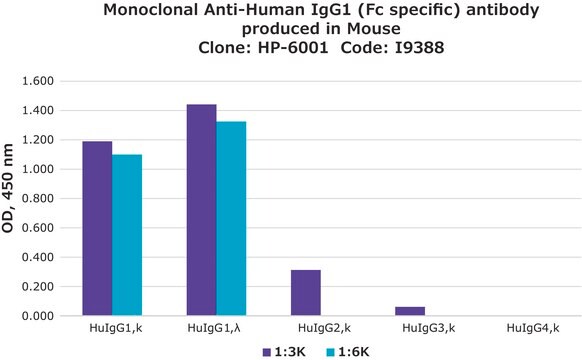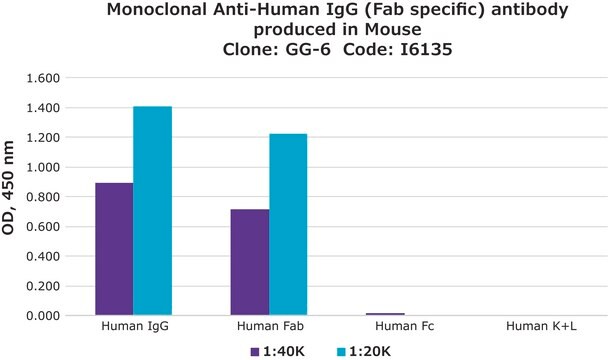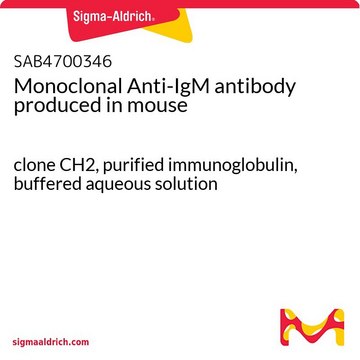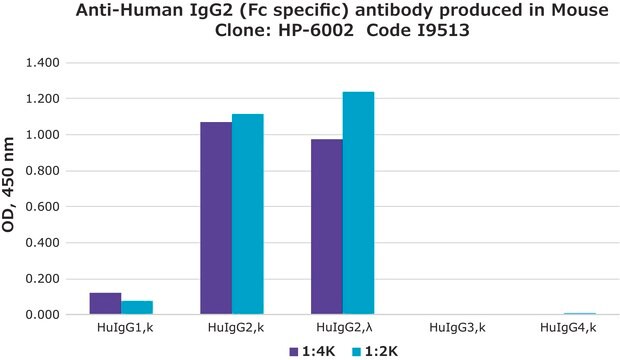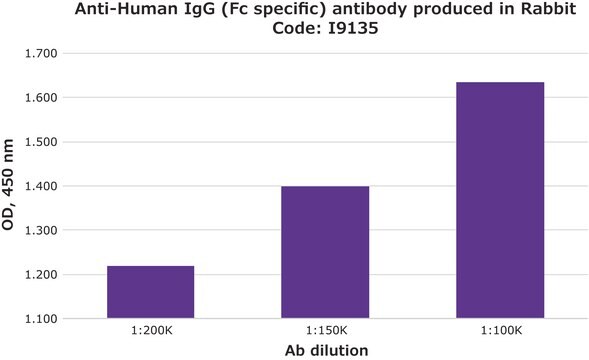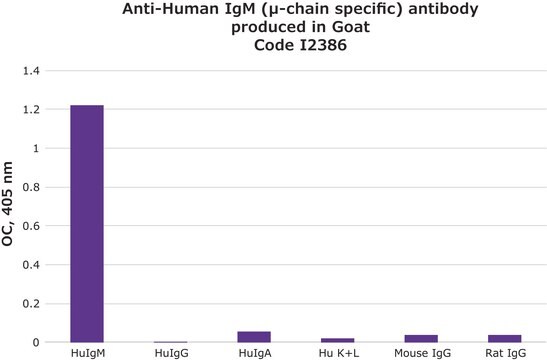SAB4200682
Anti-Human IgG (Fc specific) antibody, Mouse monoclonal
clone GG-7, purified from hybridoma cell culture
Synonyme(s) :
Monoclonal Anti-Human IgG (Fc specific) antibody produced in mouse
About This Item
Produits recommandés
Source biologique
mouse
Niveau de qualité
Forme d'anticorps
purified immunoglobulin
Type de produit anticorps
primary antibodies
Clone
GG-7, monoclonal
Forme
buffered aqueous solution
Espèces réactives
human
Concentration
~1 mg/mL
Technique(s)
ELISA: suitable
immunofluorescence: suitable
indirect ELISA: 0.25-0.5 μg/mL using 5μg/mL human IgG for coating.
Isotype
IgG1
Conditions d'expédition
dry ice
Température de stockage
−20°C
Modification post-traductionnelle de la cible
unmodified
Description générale
Immunogène
Application
- ELISA
- Imprint Immunofixation (IIF)
- Immunofluorometric Assay (IFMA)
- Hemagglutination (HA)
- Hemagglutination Inhibition (HAI)
- Particle Counting Immunoassay (PACIA)
- detection of cytoplasmic IgG
Actions biochimiques/physiologiques
Forme physique
Clause de non-responsabilité
Vous ne trouvez pas le bon produit ?
Essayez notre Outil de sélection de produits.
Code de la classe de stockage
10 - Combustible liquids
Point d'éclair (°F)
Not applicable
Point d'éclair (°C)
Not applicable
Faites votre choix parmi les versions les plus récentes :
Certificats d'analyse (COA)
Vous ne trouvez pas la bonne version ?
Si vous avez besoin d'une version particulière, vous pouvez rechercher un certificat spécifique par le numéro de lot.
Déjà en possession de ce produit ?
Retrouvez la documentation relative aux produits que vous avez récemment achetés dans la Bibliothèque de documents.
Les clients ont également consulté
Notre équipe de scientifiques dispose d'une expérience dans tous les secteurs de la recherche, notamment en sciences de la vie, science des matériaux, synthèse chimique, chromatographie, analyse et dans de nombreux autres domaines..
Contacter notre Service technique

